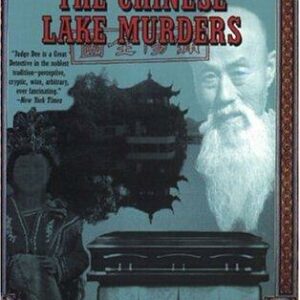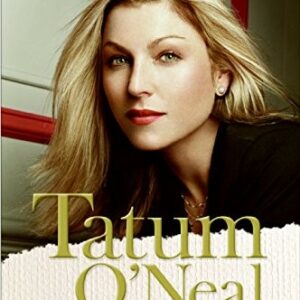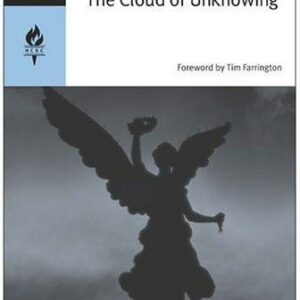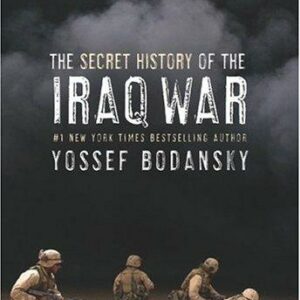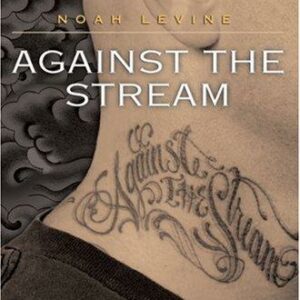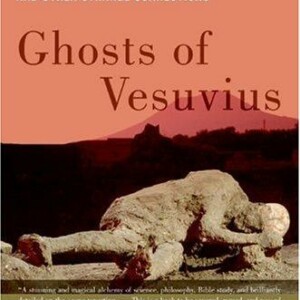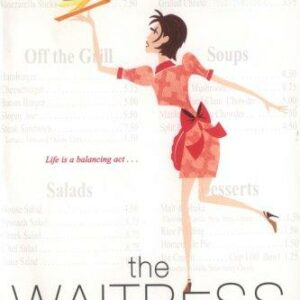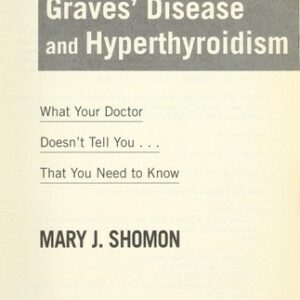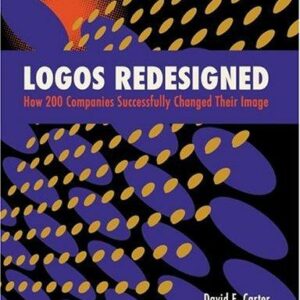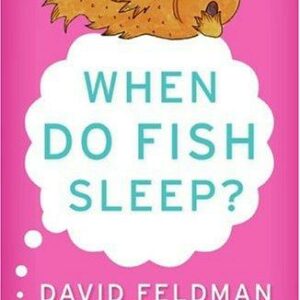An Embarrassment of Critch’s
$16.95
| Title | Range | Discount |
|---|---|---|
| Trade Discount | 5 + | 25% |
- Description
- Additional information
Description
Description
NATIONAL BESTSELLER
The heartfelt and hilarious story of beloved Canadian comedian Mark Critch’s journey from Newfoundland to the national stage–and back home again.
One of Mark Critch’s earliest acting gigs was in a Newfoundland tourist production alongside a cast of displaced fishery workers. Since, he’s found increasing opportunities to take his show on the road. In An Embarrassment of Critch’s, the star of CBC’s This Hour Has 22 Minutes revisits some of his career’s–and the country’s–biggest moments, revealing all the things you might not know happened along the way: A wishful rumour spread by Mark’s father results in his big break; two bottles of Scotch nearly get him kicked out of a secret Canadian airbase in the United Arab Emirates; and for anyone wondering how to get an interview with the Prime Minister and Bono (yes, that Bono) on the same evening, Critch might recommend a journey to the 2003 Liberal Convention.
Critch’s top-secret access to all of the funniest behind-the-scenes moments involve many of the charismatic and notorious politicians we love to see blush, including fearless leaders Justin Trudeau, Stephen Harper, Paul Martin, and Jean Chrétien, celebrities such as Pamela Anderson and Robin Williams, and other colourful figures he’s met over years of pulling off daring skits at home and abroad. Remember when MP Carolyn Parrish took her boot to George W. Bush’s head in an interview? Or when Critch asked Justin Trudeau where the best place to smoke pot on Parliament Hill was before pulling out a joint for them to share? There’s more to each of those stories than you know. Though Critch has spent years crisscrossing the country–and the globe–with the explicit aim of causing trouble everywhere he goes, like the best journeys, this one takes him right back home.*SHORTLISTED FOR THE 2022 STEPHEN LEACOCK MEDAL FOR HUMOUR*
Praise for An Embarrassment of Critch’s:
“Mark Critch has written a second book, which is brilliant. How annoying. He writes with a charm and an ease that make you feel like he’s writing just for you. An Embarrassment of Critch’s is funny, insightful, and so damn human. It’s like a conversation with your funniest friend. I loved it.” –Jim Gaffigan, author of Dad is Fat
“Mark Critch weaves rollicking tales that both surprise and delight. His words are hilarious, insightful, and oh-so entertaining. Prepare to laugh, cry, and get a glimpse behind the curtain of Canada’s most fascinating man! Everyone in my circle will be receiving a copy of this book.” –Tessa Virtue, Olympic champion and co-author of Tessa and Scott: Our Journey from Childhood Dream to Gold
“Mark Critch and his writing are gifts of authenticity, both completely devoid of preciousness. They are important and vital. Critch is one of the good guys and his books are good books.” –Jay Baruchel, writer, actor, director, comedian, and author of Born into It
“Mark is a proud Newfoundlander and Canadian who understands the human condition. His keen sense of observation and understanding of what makes people tick is the essence of his acting and comedic brilliance. . . . Mark Critch has become a model of what makes Canada special.” –Rt. Hon. Jean Chrétien, 20th Prime Minister of CanadaMARK CRITCH is one of the most recognizable faces in Canadian comedy and has won multiple awards for both writing and performance. For fourteen years, he has starred on CBC’s flagship show, This Hour Has 22 Minutes. As an anchor and “roving reporter,” he has brought celebrities and politicians to Canadian living rooms across the nation. He is the host of CBC’s Halifax Comedy Festival and has written for and appeared in CBC’s world-renowned Just for Laughs series.PROLOGUE
If you read my first book, Son of a Critch, you will know that I was born and raised in Newfoundland and Labrador. That book told the story of my childhood and where I got my sense of humour. This is the story of my adulthood and what I did with that sense of humour.
I’m writing this book from Gower Street, in St. John’s. It is arguably the oldest city in North America. I say “arguably” because it is not but we love to tell people that it is. If I left my house and lay on my side I could roll myself straight into the Atlantic Ocean. I have almost accidentally done that on many late-night walks home from the pub.
The people of my province have always been known for their wit. We have offered up more than our fair share of comedians to the national stage. Maybe there is something in the water, besides salt.
I recently discovered that the most famous joke in the world was born a stone’s throw from my house. In 1899, a Canadian snake oil salesman named Doc Kelley visited St. John’s with his travelling medicine show. Kelley would travel to far-flung places and entertain crowds who may never have seen a show before. Kelley’s shows were meant to gather punters to which he would sell bottles of his Shamrock Oil, which he claimed was good for “headaches, earaches, toothaches, neuralgia, cuts, scalds, sprains, rheumatic aches and pains.” Kelley would sell his “medicine” for fifty cents a bottle, then leave town before anyone noticed that the medicine was probably better used as a disinfectant.
The self-styled doctor was trying to raise a crowd for his performance one night when he found himself watching a show of a different kind. A cook was arguing with his kitchen boy and the yelling had drawn a small crowd. The cook threw a half-eaten piece of pie at the boy, hitting him in the face. The crowd of onlookers burst into laughter, giving Kelley an idea for an experiment.
He bought a pumpkin pie, staged a fight with his banjo player and at the exact right moment, he slammed the pie right into his partner’s face. The audience of Newfoundlanders erupted into laughter. No one had ever seen anything so funny before Kelley incorporated the “pie in the face” into his act, and slapstick comedy was born. Kelley’s bit was stolen and used by Charlie Chaplin, Buster Keaton, Bugs Bunny and millions more all over the world.
Pieing, as it’s now known, works best when the person being pied is of higher status than the person throwing the pie. Charlie Chaplin always pied the cop, not the other way around. That’s why activists often pie politicians. A protestor pied former prime minister Jean Chrétien in 2000. “I’m not that hungry,” he quipped.
Like Doc Kelley, I have travelled the world trying to entertain people and, like him, I have never laughed harder than I have in my hometown of St. John’s. I don’t pie prime ministers but I have made fun of several to their face and the effect is pretty much the same. This book is the story of my travels and the siren call that brought me home again. Unlike Doc, I believe laughter is the best medicine. I hope this book will cure what ails you.
LEAVING HOME
What do you want to do when you grow up?” my father asked me. I was taken aback. I was seventeen at the time. I thought I was a grown-up. I was too young to know I wasn’t an adult—old enough not to know better, but young enough not to know a damn thing. Ignorance is bliss and I was the happiest man on earth.
My father, on the other hand, was seventy-six. He was a retiree with a high school graduate on his hands. I was what my Catholic family would call a “blessing” but what most people would acknowledge as an accident, or at the very least the result of one too many beers at the office Christmas party. I was the hangover that just wouldn’t go away. I suppose Dad looked at my graduation day the way a warden might look at his last remaining prisoner’s parole date. A certain amount of freedom was on the horizon for both parties involved. “You could geta trade,” he suggested. We both knew that wasn’t an option. I was a thin, asthmatic epileptic with weak ankles. I couldn’t see myself taking a welding course any time soon. This conversation had been coming and we had both avoided it like a married couple pretending they hadn’t already been divorced for years. The admission was simply a formality.
“I want to be an actor,” I said, aging my already grey-haired father another decade he couldn’t afford to lose. Dad avoided my hopeful gaze. He looked down at his brown leather dress shoes. They were scuffed from years of work and worn into something comfortable yet still formal, much like he was.
“I could get you a job researching deeds,” he said, deflecting my truth like Wonder Woman blocking a bullet with her metal bracelets. My father came from a time when you took a job because you could get one, not because you chose it. His father had died of tuberculosis when my father was just five years old. His mother went “in service,” scrubbing the floors of wealthy St. John’s families while my dad roamed Water Street for odd jobs to help keep a roof over their heads. He would remind me that he had fought “tooth and nail” to crawl out of the grip of poverty. Now, I was trying to shake its hand.
He’d known this day was coming, though. There had been plenty of warning signs. I had been in school plays. I’d formed a sketch comedy troupe. I spent every free moment writing. My room was filled with scripts and costumes. There was no escaping it. His son was an artist. “I want to be an actor,” I argued. “It’s who I am.”
“But you could still be yourself on the side, couldn’t you?” he countered. “Good god. This is not the time to be clowning around with that foolishness. The arse is out of ’er.”
The only job my father had left in life was to get me on a steady path, and his method was somewhere between a bird gently nudging its hatchling out of the nest and a man tossing a bag of garbage onto the curb without looking to see where it may fall. But he had a point. I was entering the job market just as thirty-five thousand other Newfoundlanders were put out of work overnight.
When John Cabot first “discovered” my homeland of Newfoundland in 1497 (much to the surprise of the native Beothuks who lived there), he wrote that you merely had to place a basket over the side of the ship and when you pulled it back up again it would be teeming with cod. You didn’t even need a net. By the time I graduated from high school in 1992, though, you couldn’t find a cod if you drained the ocean. Decades of overfishing had depleted the cod stocks. In a desperate move, the federal minister of fisheries and oceans, John Crosbie, a Newfoundlander himself, shut down the northern cod fishery after five hundred years, ending the greatest fishery in the world with the swipe of a pen.
Crosbie was labelled a traitor. When a group of angry fishermen surrounded him on a wharf, he stood tall and told them that he “didn’t take the fish out of the goddamn water.” If it hadn’t been true, they might have killed him. The moratorium was meant to give the species time to rebuild but they still haven’t come back. Maybe, like many other Newfoundlanders, the cod had simply moved to Alberta to work in the oil sands. Nobody knows.
I had wanted to become an actor in a part of Canada where, months earlier, it was much more realistic to become a fisherman. But in 1992 that situation changed, and my chances of making it as a comedian were suddenly just as feasible as a life at sea. There was no future in either.
None of the sudden economic disaster affected my family, though. My father was a newsman. He worked in AM radio, and bad news was good news for the Critches. I grew up right next door to his radio station in the capital city of St. John’s. My bedroom view was of satellite dishes and radio towers, not waves and lighthouses.
I didn’t know any fishermen. I hadn’t even been outside of the city in my life. The Critches were not nomadic people. I would watch in wide-eyed wonder as the richest kids in my class showed me the pictures of their family vacations. Florida! New York! Moncton! Our family never went anywhere. We only took one trip a year and it was not to Disneyland or Marine Land. It was to Newfoundland.
We would pack our bags and take the bus to the park that lay eight kilometres away. The old man acted as if that eleven-minute drive was akin to Lindbergh’s hop across the Atlantic. A lunch was packed, watches were synchronized, and the night before was a restless one.
“Mary,” my father would shout to my mother, having shot up right in his bed, “do you have the bus schedule? When’s the last bus? Good god! We don’t want to miss that! We’ll be stranded. We’ll have to sleep on the street.”
Nobody enjoyed the trip to the park more than my father, and he hated it. Dad never changed out of his suit. He would watch me splashing in the pool like he was paying by the water drop. “Isn’t that long enough?” he would ask, staring at his watch. “You’re plenty wet now.” He wouldn’t calm down until we were sitting on the bench at the bus stop, a full three hours early. I’d stare out the window on the ride home, dripping onto the faded vinyl seat. I was fascinated by the strange neighbourhoods that whizzed past me. I wished that I could spend some time exploring that world. I wanted that almost as much as I wished I had been allowed to change out of my wet trunks before we boarded the bus.
Once home, I’d sit on the front step of our house and watch the cars as they headed out of town on the highway. I’d have gladly climbed into any one of them just to say I had been “somewhere.”US
Additional information
Additional information
| Weight | 7.6 oz |
|---|---|
| Dimensions | 0.6300 × 5.1800 × 7.9900 in |
| Imprint | |
| ISBN-13 | |
| Author | |
| Audience | |
| BISAC | |
| Subjects | best selling books 2021, satire, political satire, biographies and memoirs, biography books, secret santa gifts, funny stocking stuffers, non fiction books best sellers, newfoundland gifts, autobiography books, books best sellers 2021, Son of a Critch, Canadian politics, Stephen Harper, Rick Mercer, Alan Doyle, Justin Trudeau, Mark Critch, humour, HUM020000, BIO026000, biography, Memoir, comedy, humor, funny books, autobiography, politics, biographies, memoirs, funny gifts, White Elephant gifts, autobiographies, Books for men, cbc |
| Format |


